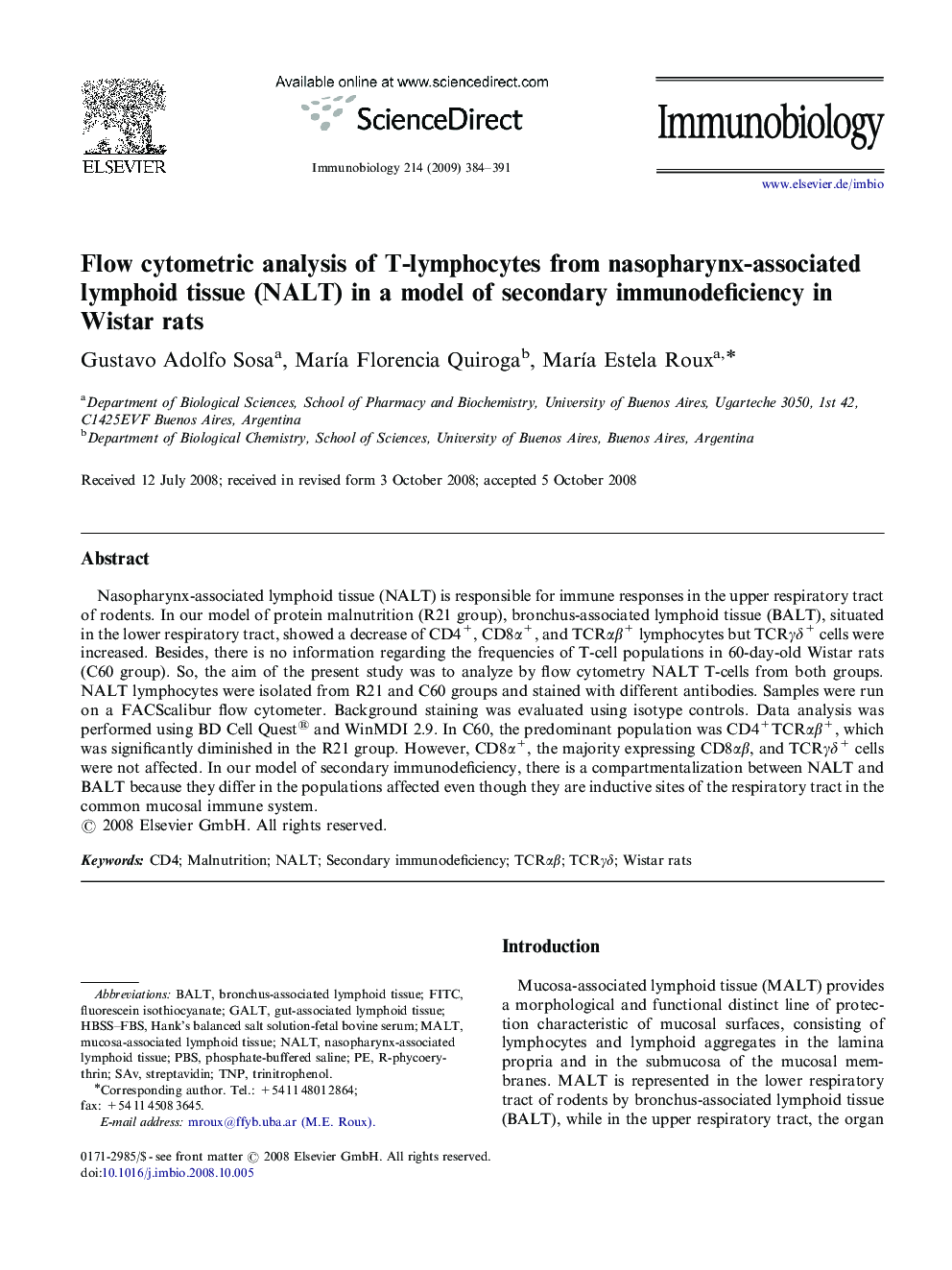| کد مقاله | کد نشریه | سال انتشار | مقاله انگلیسی | نسخه تمام متن |
|---|---|---|---|---|
| 2184113 | 1095634 | 2009 | 8 صفحه PDF | دانلود رایگان |

Nasopharynx-associated lymphoid tissue (NALT) is responsible for immune responses in the upper respiratory tract of rodents. In our model of protein malnutrition (R21 group), bronchus-associated lymphoid tissue (BALT), situated in the lower respiratory tract, showed a decrease of CD4+, CD8α+, and TCRαβ+ lymphocytes but TCRγδ+ cells were increased. Besides, there is no information regarding the frequencies of T-cell populations in 60-day-old Wistar rats (C60 group). So, the aim of the present study was to analyze by flow cytometry NALT T-cells from both groups. NALT lymphocytes were isolated from R21 and C60 groups and stained with different antibodies. Samples were run on a FACScalibur flow cytometer. Background staining was evaluated using isotype controls. Data analysis was performed using BD Cell Quest® and WinMDI 2.9. In C60, the predominant population was CD4+TCRαβ+, which was significantly diminished in the R21 group. However, CD8α+, the majority expressing CD8αβ, and TCRγδ+ cells were not affected. In our model of secondary immunodeficiency, there is a compartmentalization between NALT and BALT because they differ in the populations affected even though they are inductive sites of the respiratory tract in the common mucosal immune system.
Journal: Immunobiology - Volume 214, Issue 5, May 2009, Pages 384–391